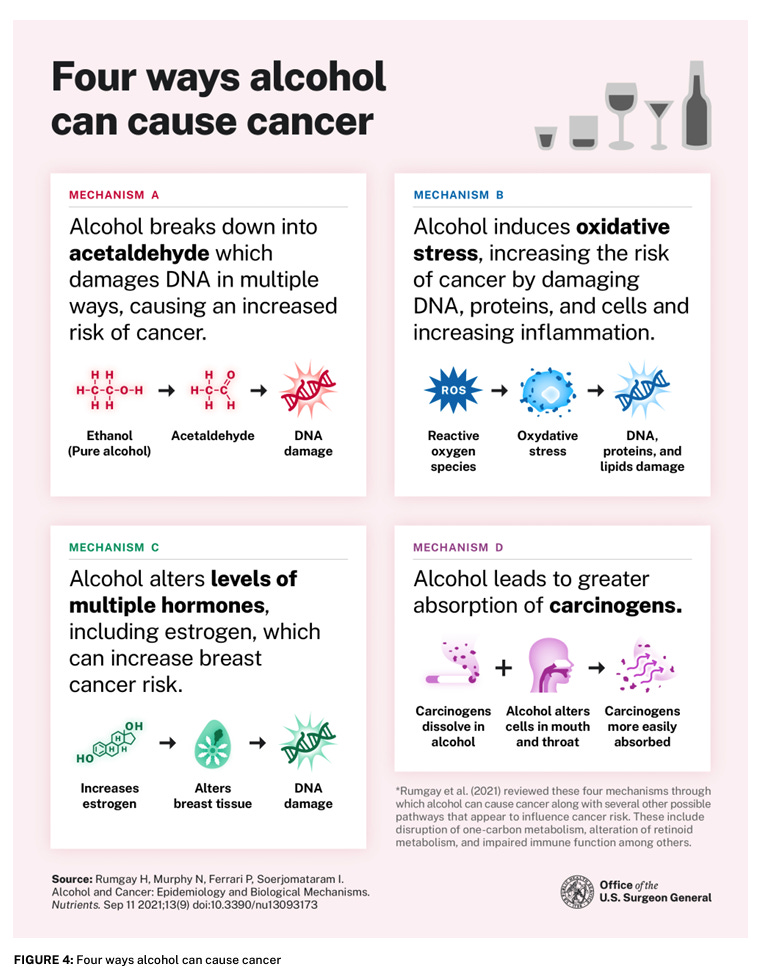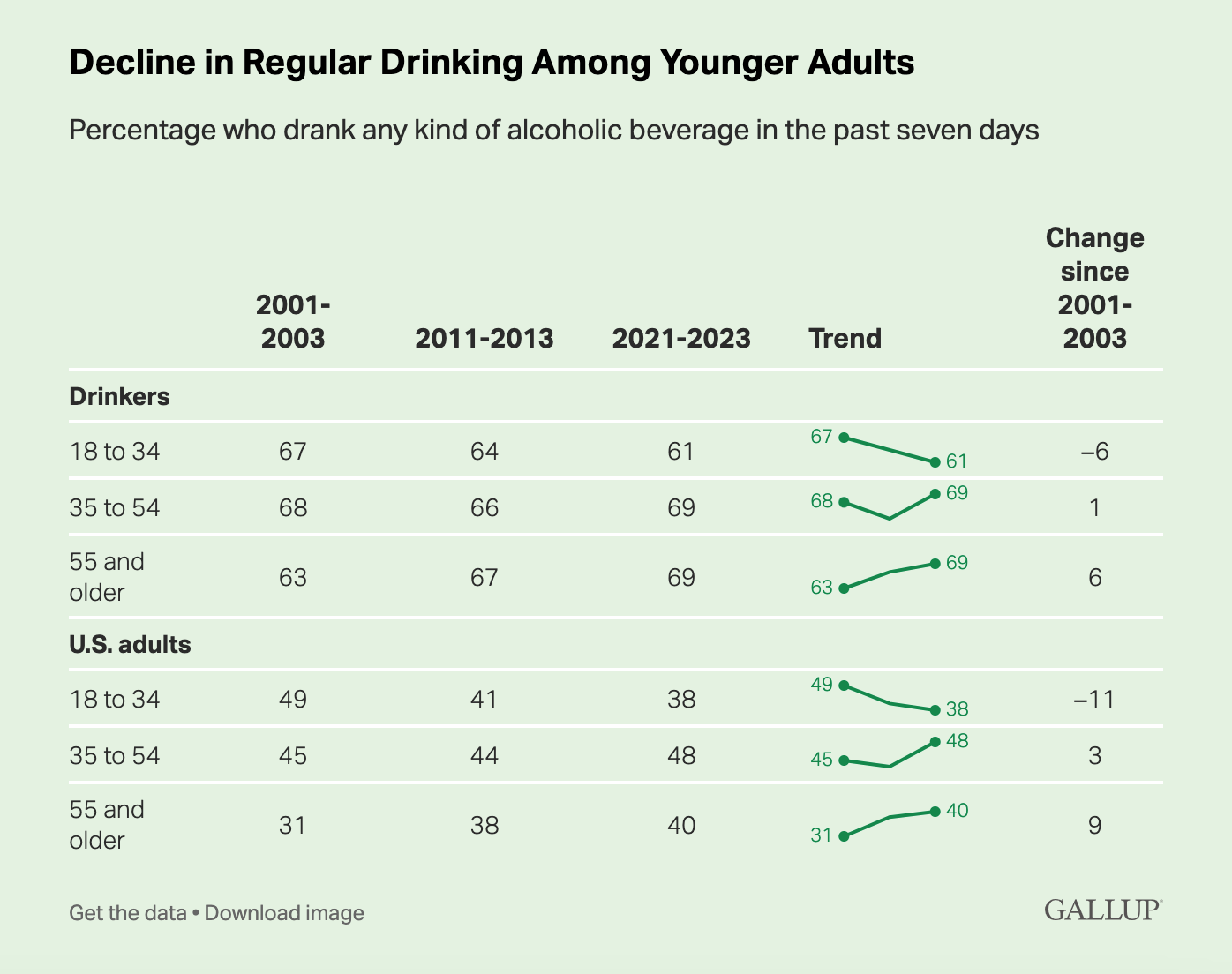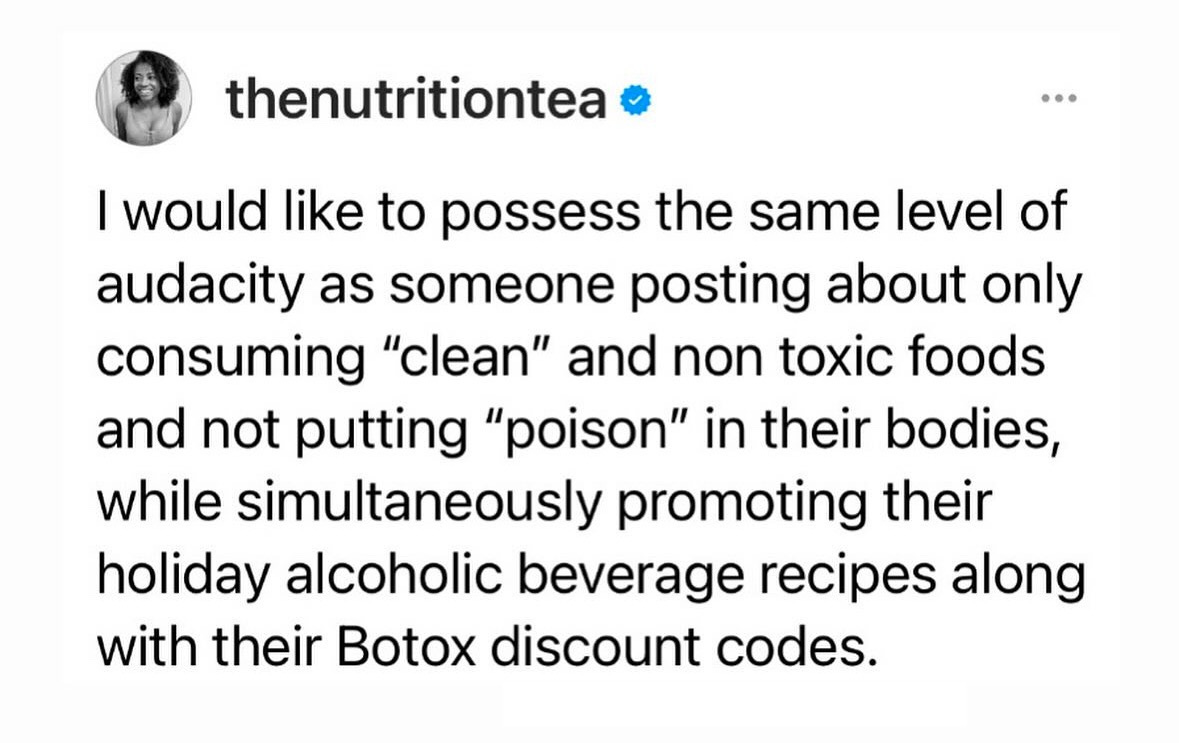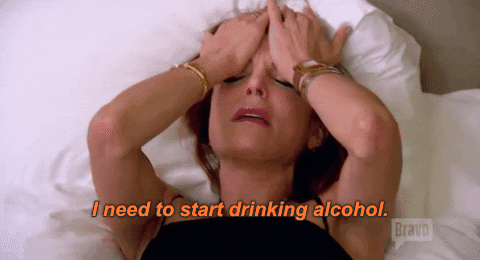Hi pot, meet kettle
Do we think that the news regarding the link between alcohol consumption and cancer will cause influencers to post about the harms of it the same way they post about the harms of food? Probably not.
Before we get into the newsletter, please note that I am traveling for the next week. So, by the time this goes out, I will be out of the States in the beautiful country of Ireland. Woohoo! In other words, this is an FYI that I might not be able to get to all comments and, most embarrassingly, catch any grammatical errors. But this also means I am human and not a robot. Thanks for understanding, and now on to today’s newsletter!
I’m sure many of you have seen the announcement from the U.S. Surgeon General stating that there is a direct link between alcohol consumption and increased cancer risk. It’s interesting to see this make headlines because we have all heard the dangers of drinking and driving, but it seems many people didn’t realize the cancer correlation.
“Alcohol is a well-established, preventable cause of cancer responsible for about 100,000 cases of cancer and 20,000 cancer deaths annually in the United States – greater than the 13,500 alcohol-associated traffic crash fatalities per year in the U.S. – yet the majority of Americans are unaware of this risk.” - U.S. Surgeon General Dr. Vivek Murthy.
If you are a science nerd and want to see a fun breakdown of how exactly alcohol can cause cancer, this graph is from the U.S. Surgeon General.
I’m always fascinated with society’s views on drinking. We (meaning society, not every single individual) seem to view it as something fun and social, not the toxin that it actually is. The World Health Organization (WHO) defines alcohol as “a toxic, psychoactive, and dependence-producing substance and has been classified as a Group 1 carcinogen by the International Agency for Research on Cancer decades ago – this is the highest risk group, which also includes asbestos, radiation and tobacco.” So yes alcohol is classified as a Group 1 carcinogen, but you know what isn’t? Sugar. And look how many times we see sugar described as “poison” or “toxic” by the media.
*Just to be clear here, I am not saying sugar should be a free-for-all consumption-wise, but what I am saying is that we tend to make light of happy hours but look down upon and have a guilt trip over a fun treat like candy.*
Personally, I was never a huge drinker or had a high tolerance. Even in college, I never had the typical co-ed party moments that you usually see or hear about. I have my favorite kind of cocktails and wine, yes and that’s about it. I never related to the stereotypical woman you see in television shows or movies coming home from a long day in the office and “needing” to open a bottle of wine to cope. I always thought, “Well, Ben & Jerry’s is right there and a much better pick.” And yes of course there are other coping strategies that can be used for stress, I am just emphasizing my personal preference.
According to a poll from Gallup, overall alcohol consumption is decreasing among the younger demographic. This can be attributed to many things, including the concern over health. These stats are from Gallup:
From a July 3-27 2023 poll, researchers found a marked increase from earlier readings in Americans’ belief that even moderate drinking is bad for one’s health.
Young adults are particularly concerned that moderate drinking is unhealthy, with 52% now holding this view, up from 34% five years ago. That 18-point increase in concern compares with a 13-point increase among middle-aged adults and little change among those aged 55 and older.
It’s also interesting to talk about drinking from a dietitian's perspective. I can’t even tell you all how many times I have heard people say that they are cutting out different foods and food groups because of inflammation, yet alcohol never seems to be among the things cut out. It’s wild to constantly talk about avoiding the toxins and the carcinogens in foods, but somehow alcohol, an actual toxin, doesn’t count for many folks. It’s a cognitive dissonance, quite honestly.
I’ll never forget when I was watching an episode of The Real Housewives of Miami. Yes, a Bravo reality television show. It’s one of those types of shows that many of us watch, but few will admit. We listen, and we don’t judge. Anyway, one of the women constantly talked about how she was avoiding carbohydrates. Bread? Absolutely not! Potatoes? How dare you even ask. But somehow, despite her carbophobia, she would inhale alcohol at the drop of a hat. And I’m talking all-day consumption, as in she had a bottle in her hand from morning. Again, the cognitive dissonance of being scared to consume food because of the impact on the body, but alcohol is an exception. Please make it make sense.
Unfortunately, this is not a one-off situation limited to characters on a television show. Some people who drink in large amounts limit their food intake to compensate for the calories in alcohol. This unhealthy behavior is sometimes called “drunkorexia” and can indicate or lead to an eating disorder. Yes, this is an actual occurrence. It shouldn’t be surprising considering the fatphobia in our society. We (society) uphold thinness in such a way, that we don’t care about the tactics in order to get there.
Not to pick on the housewives, but in the Real Housewives of New York franchise, Bethenny Frankel made her stake in the alcohol industry with her Skinny Margarita cocktail recipe and turned it into a Skinny Girl Brand global empire. In one episode, she took the women on a trip to Tequila Mexico (Santiago de Tequila) where the alcohol for her company was being outsourced. The group was seen “taste testing” all the tequila from the factory, and then drinking more tequila that was served at lunch, and then when they got back to their hotel, even more alcohol for the rest of the day. At one point Frankel herself said, “This was the group to bring to Tequila.”
I am not going to act like I am holier than thou because I continued to watch the episode and the series. After all, we continue to watch shows like this to be entertained. I did find the amount that they were drinking a little bit cringe, but at the same time, these were very grown women in their 40s - 60s, so they could make their own decisions about what goes into their bodies, and they weren’t driving or harming anyone else. Not an excuse at all, and as a dietitian I kept whispering “water please!” to the television, but I need to say that for those who don’t watch. Just to be clear, I am not making light of the situation.
Here’s the thing, the alcohol consumption was promoted and nonchalantly regarded by Frankel, which is highly ironic given that she is the author of books titled “Naturally Thin” and “SkinnyGirl Solutions” which are restrictive eating books. Not to mention that Frankel continued to describe herself as a natural foods chef. I mean, alcohol is natural, but you know what else is? Cane sugar. Just saying. I guess I am having a hard time understanding how it is okay to overly consume toxins in drink form, but somehow, we should all be scared of the over consumption of food more. Actually I do get it, it’s her business which makes her money. And I think that’s the key part that we need to always remember. The alcohol industry, just like the weight loss industry, is always about money and how to make more.
So why am I writing all of this? I find the irony of fear-mongering foods but not fear-mongering alcohol very telling. I see so many posts of wellness influencer after wellness influencer walking through grocery store aisles talking about the harmful ingredients in food. None of these claims are backed by scientific evidence, and most of them are largely untrue. What really makes me tilt my head and go “huh” is when I see them promoting their own lines of alcohol or partnering with alcohol companies. The double whammy is when they advertise so-called “clean wines” or “clean tequila.” Again, “huh?” There’s no such thing.
So let me get this straight, they’re scared of the ingredients in food because they aren’t familiar with these ingredients, but alcohol, which is categorized as an actual toxin, is totally okay? Please make it make sense. I would go as far as to say that it is even more than just a cognitive dissonance. It’s intentionally ignoring facts in order to make a profit. I feel the same way about anyone discussing health and wellness without discussing socioeconomic factors that have a detrimental impact.
My only goal is to make people more aware of how so much of what we see regarding health and wellness, is truly elitist and rooted in capitalism. Overall, how about we stop demonizing food and drink choices? It looks a bit odd to demonize soda and juice as harmful, but have zero energy to talk about minimizing alcohol intake mostly because you benefit financially from it. Hi pot, meet kettle.









I wonder if fatphobia is at the core of all of this. "Healthy" vs. "unhealthy" often seems to be a code word for "doesn't make you fat" vs. "does make you fat." We've constructed it as a binary, when in reality, whether or not a particular food or substance is "healthy" is quite multidimensional and individualized.
Anyway, I agree: I'll take Ben and Jerry's over booze any day.
Ah, age old lie of put clean in front of anything and it’s suddenly better! Like clean coal. They’re all oxymorons- emphasis on the morons.
This has bothered me since entering recovery. I was one of those drunkorexics with anorexia and it’s absolutely a real thing. I’m so sick of people saying clean eating when they’re describing orthorexia. And it’s just been everywhere even more so since RFK Jr ran for president and now will likely head the HHS. Like now the “obesity epidemic” is back? Bernie is discussing clean eating and ultra processed food. Sir, stay in your lane. We know you (Bernie) know how the government was lobbied by beef farmers to change the food pyramid. And the discussion should be about access to food… How do we help people who experience poverty or who are fiscally constrained have better access to foods?
How can we not see the dehumanizing of fatphobia/anti-fatness/fat bias? Like this obsession is such a control tactic too. And how can society not see the difference between alcohol poisoning which can literally kill you from over consumption, whereas if food poisoning is fatal (which is rare) it’s not because you ate too much… it’s from bacteria. It’s nonsensical. And most additives in food are to preserve... To increase shelf life and flavor. But sure that’s dirty. These influencers need to go back in time and see what used to happen to food before there was even proper storage, before there were additives- Then tell me that food was cleaner.